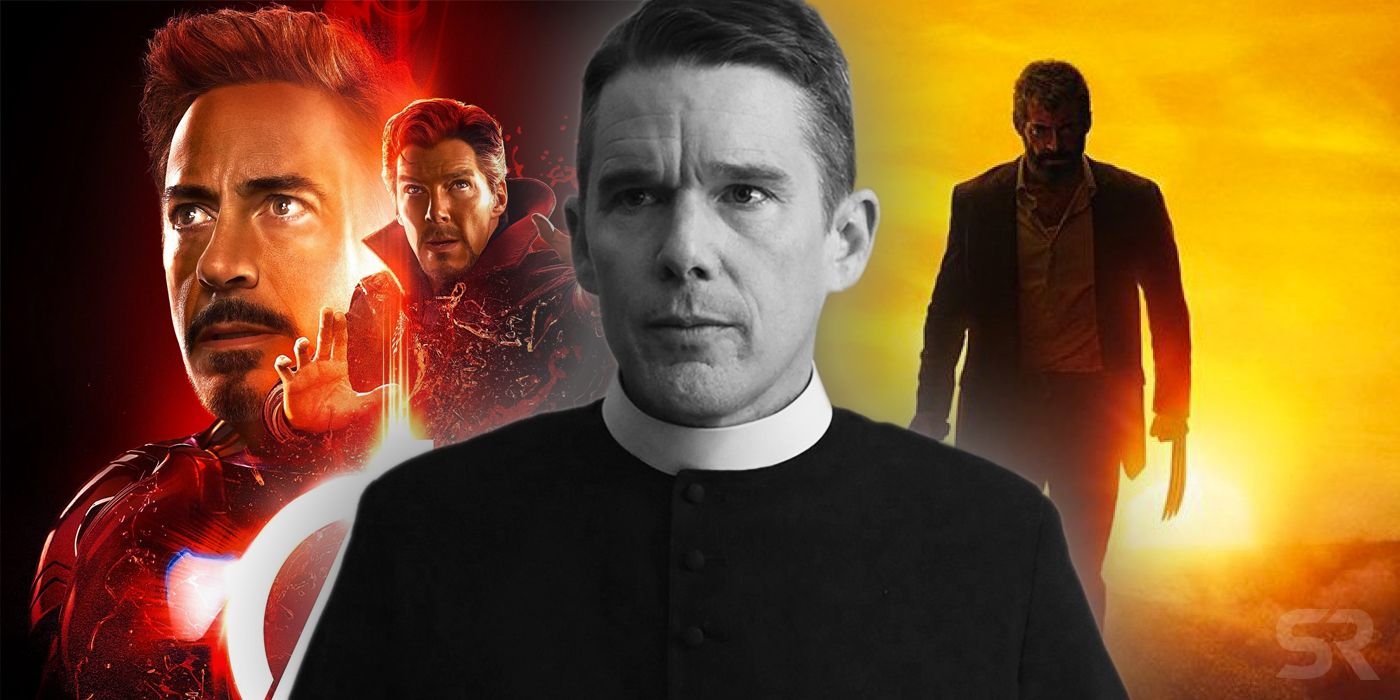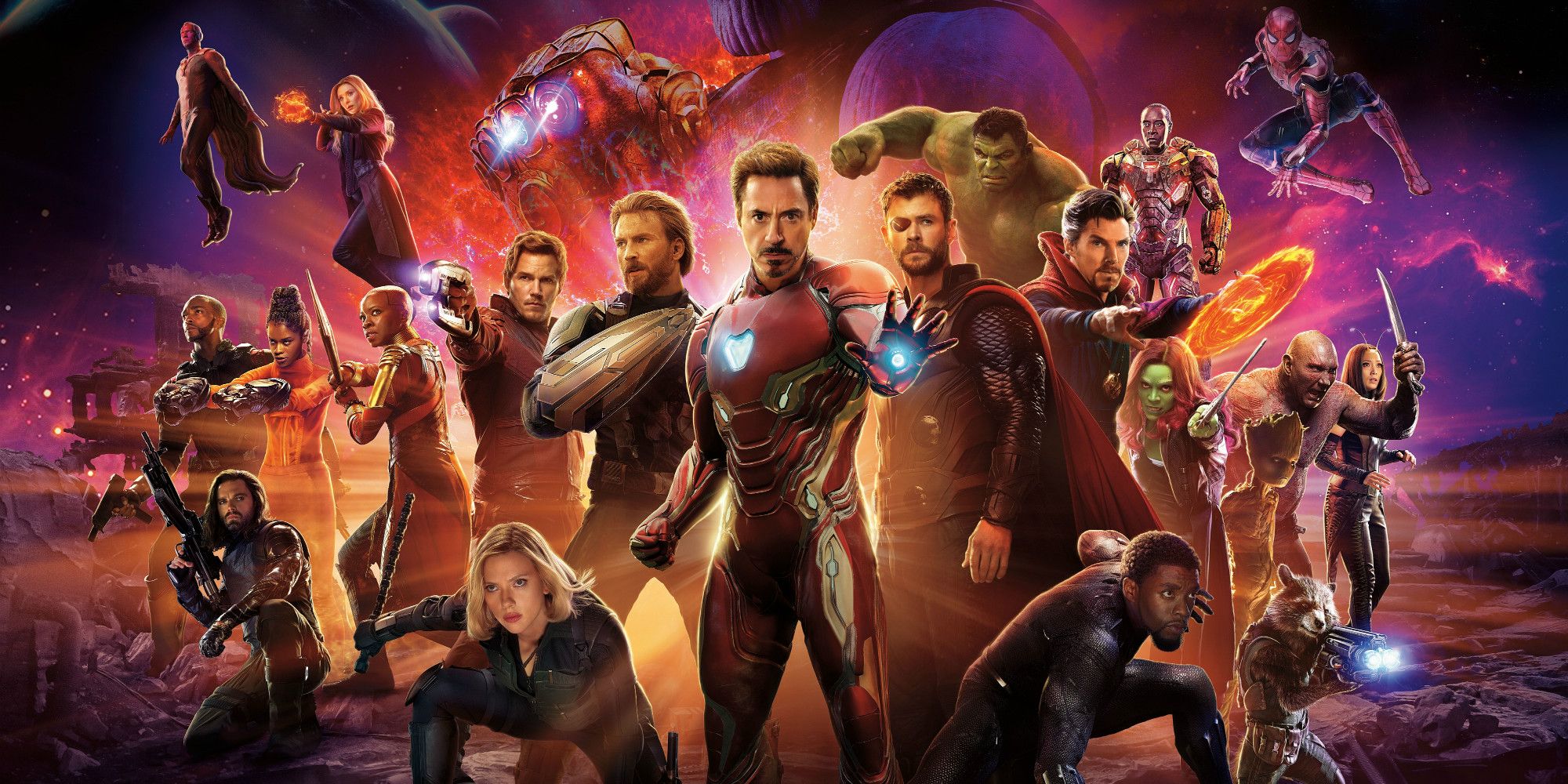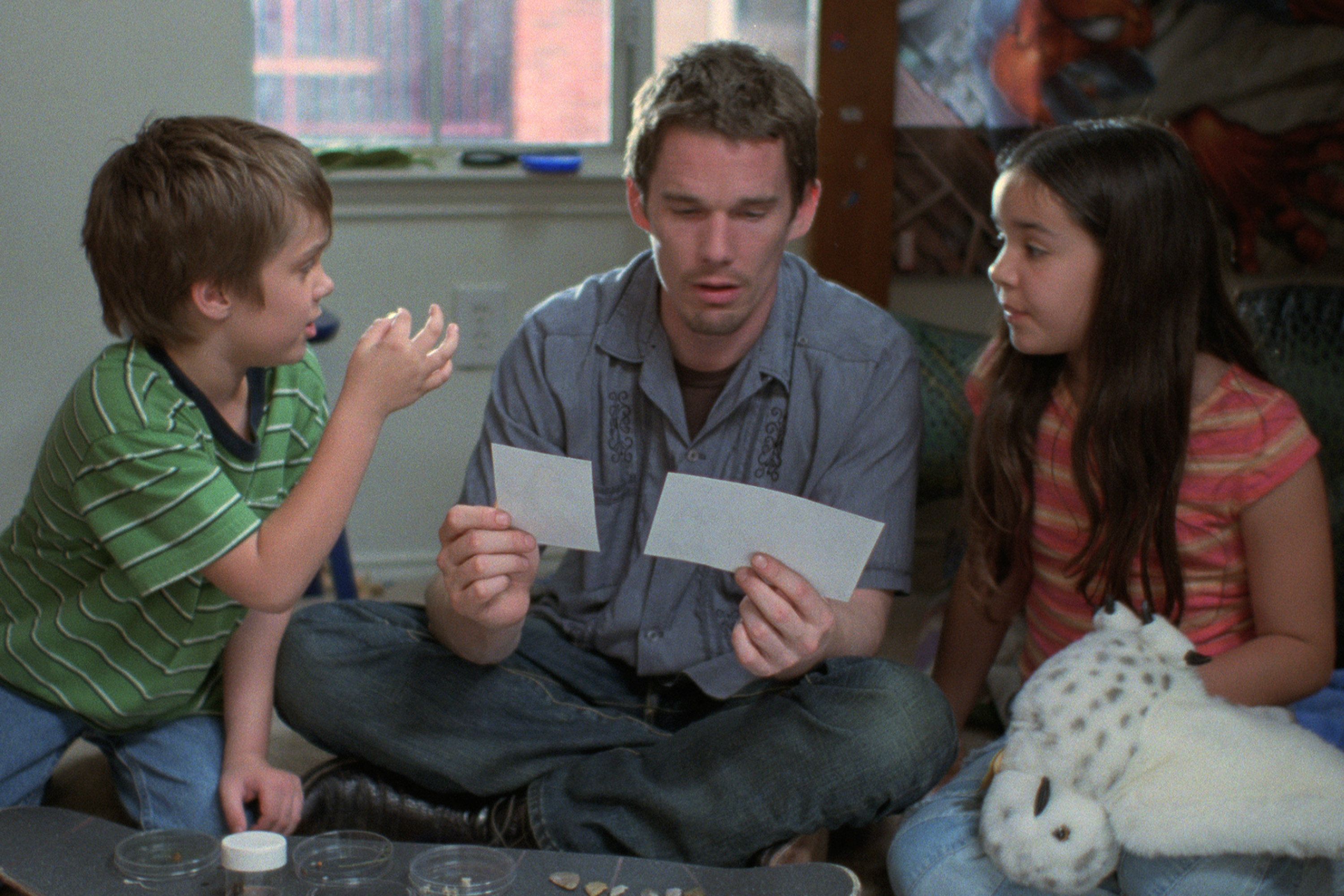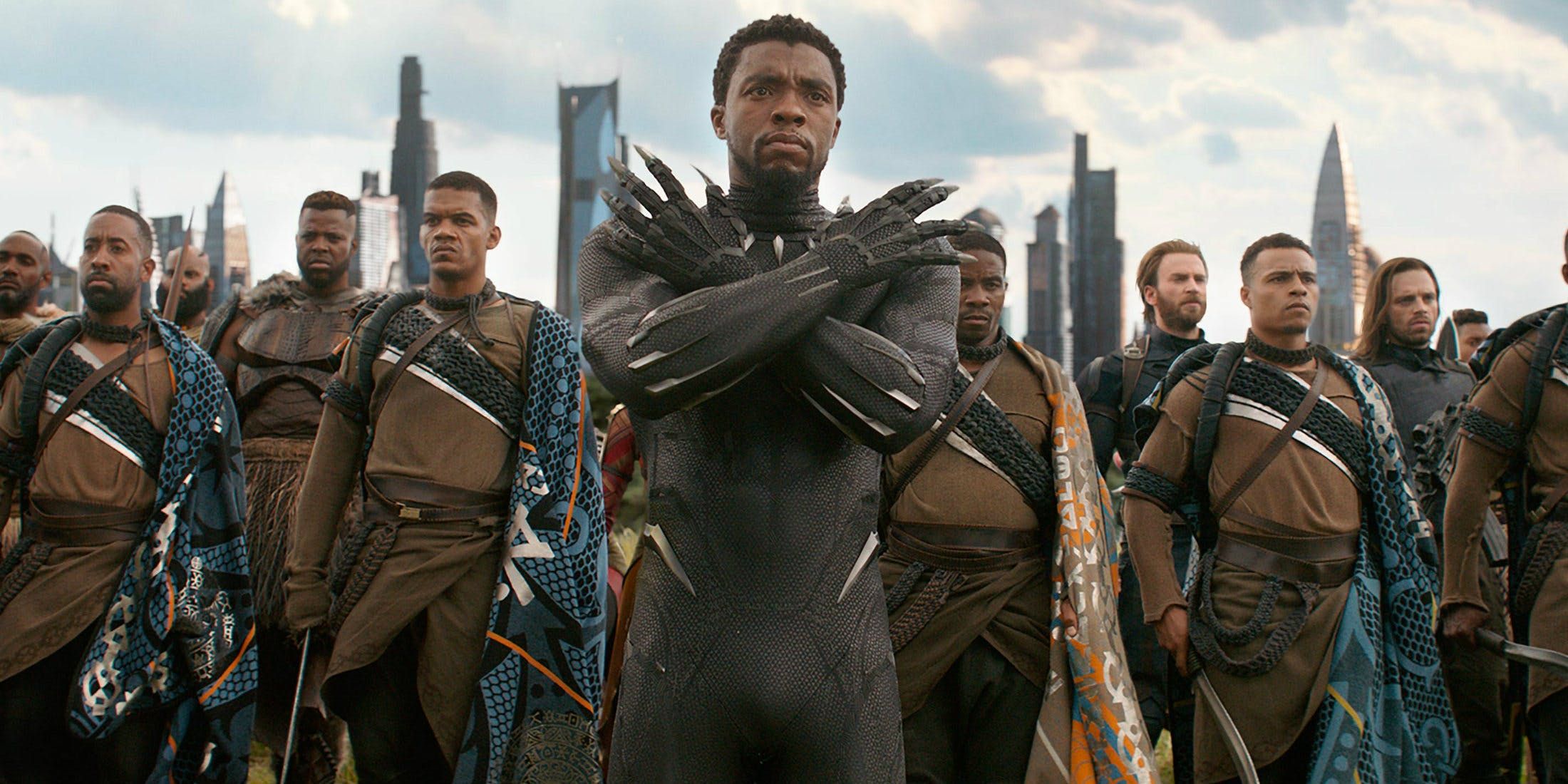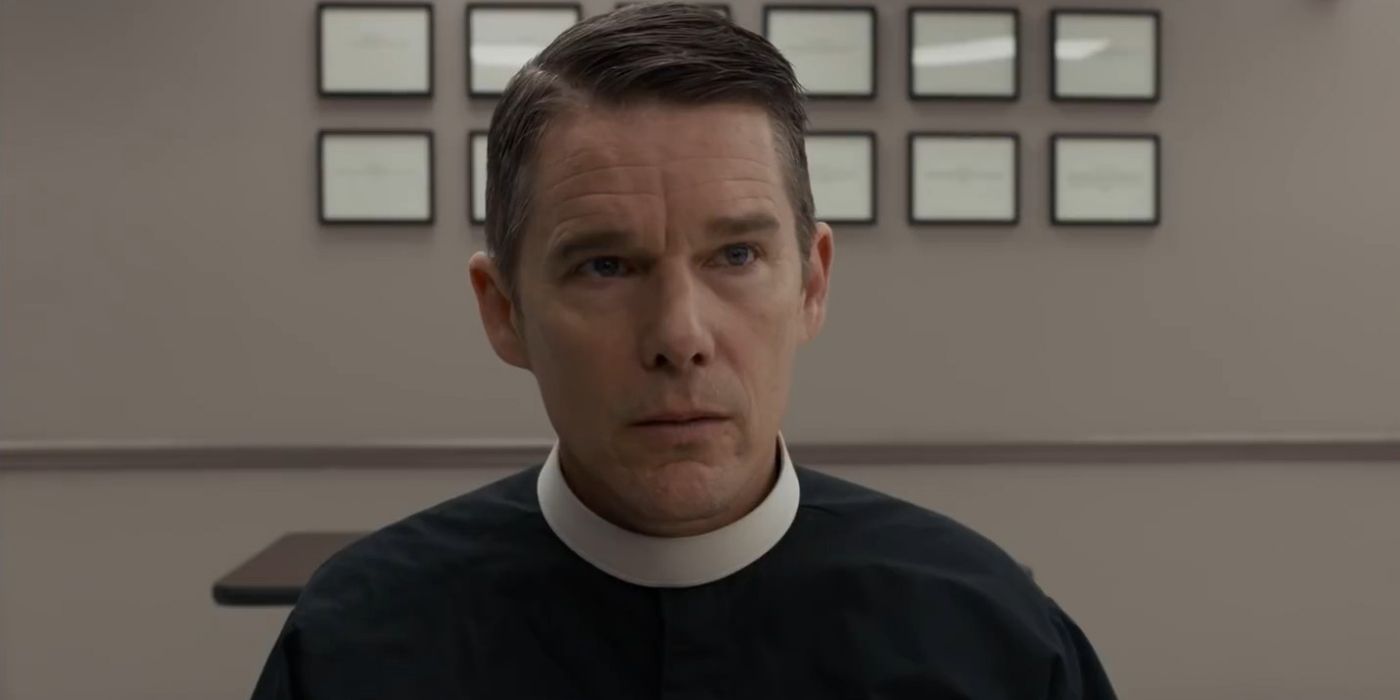Ethan Hawke courted controversy this week with his comments on superhero movies. And, while his negative take has definitely led to some strong reactions, he's not totally wrong - at least when it comes to how we discuss cinema.
Ahead of collecting his Lifetime Achievement Award at the Locarno Film Festival, the actor gave his opinion on Logan, a superhero movie praised for its raw, emotional script, claiming it was a great superhero movie, but not a great movie: "It’s not Bresson. It’s not Bergman. But they talk about it like it is." His strike went deeper than just Hugh Jackman's final Wolverine film, though, calling out "big business" and the delineation of quality and profitability.
Related: Why Logan’s Ending Is Perfect
Hawke's words are bound to be seen wrong by many; most would agree that Logan is, in fact, an exception to most superhero movies because of its depth of feeling and maturity. But the fact most would describe it as an exception despite most big screen comic book adaptations earning high praise suggests that Hawke's not exactly wrong when it comes to his view on the wider industry.
- This Page: What Ethan Hawke's Really Saying About Superhero Movies
- Page 2: Why Ethan Hawke Isn't Wrong
Yes, Superhero Movies Are Held To A Different Standard
The superhero genre wasn't always the peak of Hollywood. Initially, popular superhero comics were turned into Saturday TV shows aimed at kids, with the rise of the blockbuster in the 1970s thanks to the likes of Star Wars marking the first shift. Superman: The Movie arrived in 1978, although aside from Kal-El and Batman, although superhero movies did not really become mainstream until the 2000s, when films such as X-Men and Spider-Man paved the way for a widening range of adaptations and overall increase in recognition, bolstered by the Marvel Cinematic Universe.
There are differing opinions on how or why superhero movies became so popular, ranging from the socio-political climate in the wake of 9/11, to the advances in special effects, but the truth is a combination of many factors rather than any one point. Crucially, the formula has been refined: scripts are better; the casts are full of A-list stars; the special effects are more realistic and offer greater scope; the creation of cinematic universes ensure audiences keep coming back for more; we have a greater need for escapism in our movies owing to world affairs. However, for all the success and plaudits, few would argue they mark the artistic pinnacle of cinema.
Superhero movies are tentpole movies, existing to provide escapism and drive box office revenue. They succeed incredibly well at this, and are increasingly stretching to craft characters of higher emotional complexity and stories that speak greater to the world we live in. That's an increase of quality and deserves praise - but it's really doing so in contrast to the lower critical standard the genre has been held to thanks to its long, sometimes-choppy history. What's expected of a great superhero movie is different to that of a great entry in another genre because of the in-built broad appeal, and while neither is intrinsically better than the other, that does shift perceptions.
Related: Why Don't Superhero Movies Win Oscars?
What Hawke Means When He Talks About Great Art
A superhero movie should be great entertainment, and Hawke rightly praises Logan for being just that. They can make us laugh, cry, and they can (and do) prompt hours of discussion and online debate about their meaning, from minor plot points to the future arc of our favorite characters. But there's a distinction to be made when comparing to other types of films.
Hawke has consistently praised theater as being his favorite medium to work in, believing that on stage, an actor must invest emotionally, physically, mentally in their character because there's no do-over. There will be other performances, other roles, but that moment can never be reshot. From that vantage point, it's easy to see where Hawke's view comes from; he's holding acting dear and finds greatness in movies that deliver that. In their goal to provide big entertainment, superhero movies naturally sacrifice some of those core aspects that define much of his career and, evidently, the movies he likes. What he's feeling is a disparity in how they're being treated.
Boyhood (starring Hawke) and Avengers: Infinity War are both major cinematic achievements despite their productions being different on almost every level - one cost $2.4 million, the other $300 million - and both achieve, roundly, what they set out to do. Where artistic debate comes in is in the subjective level of those goals and achievement. Few superhero movies aim beyond the entertainment level, nor should they necessarily, but that means most deliver with a ceiling to greater thematic meaning. What Hawke's really calling out is the praising of breaking past that ceiling as a comparable achievement to hitting a grand goal, despite the bar being lower.
Page 2 of 2: Why Ethan Hawke Isn't Wrong
How This Fits Into The Popular Film Oscar Debate
One can argue that Hawke's opinion is shared by the Academy, who have recently announced the creation of a new category for The Oscars dubbed Most Popular Film. The exact requirements a movie would need to meet to qualify for entry into this category have not been defined as yet, but it's abundantly clear the award exists to bring in a set of mainstream films typically overlooked by the Academy.
Related: How We Think The Academy Will Decide If A Film Is "Popular"
The controversy comes in that making a category to mark the achievement of mainstream, tentpole movies doubles as an indictment, saying that box office blockbusters are not actually of a good enough quality to be considered for Best Picture. It's a patronizing pat on the head for those movies that pull in the money but don't set the artistic world alight, and superhero movies are right at the center of it; it's expected the winner of the award in 2019 would be Black Panther.
At first, it would seem that Hawke's comments line up with the Academy's: both perceive superhero movies to be nothing more than business opportunities. However, the distinction is in recognition. While Hawke is disparaging, he's not saying superhero movies aren't capable of being great, just that we're boosting the current crop higher due to lower standards; the Academy's rules are an active reinforcement of those standards.
Ethan Hawke Isn't Wrong About Superhero Movies
Hawke's comments will be inflammatory to many (and a shot against ever seeing him pop up in a superhero movie), especially given his singling out of the Oscar-nominated Logan, but the wider discussion misses so much of the nuance. There really isn't a right or wrong side of the fence here - the beauty of cinema is that it offers such a wide-ranging choice of movies to see - and to dismiss Hawke's own dismissal ignores how we talk about and measure up different movie genres. Hawke himself states that he watched Logan and enjoyed it for what it was; he just doesn't think it goes beyond that, yet feels many people claim it does. What he's really doing is talking about the discourse, bemoaning excessive praise and, by proxy, challenging the genre for more.
For as long as audiences want them, studios will keep making superhero movies. Conversely, other filmmakers will continue to strive to produce works of that are experimental, groundbreaking, thrilling, and risk-taking movies. These are increasingly different products, playing to different audiences, and it's important to remember both.

